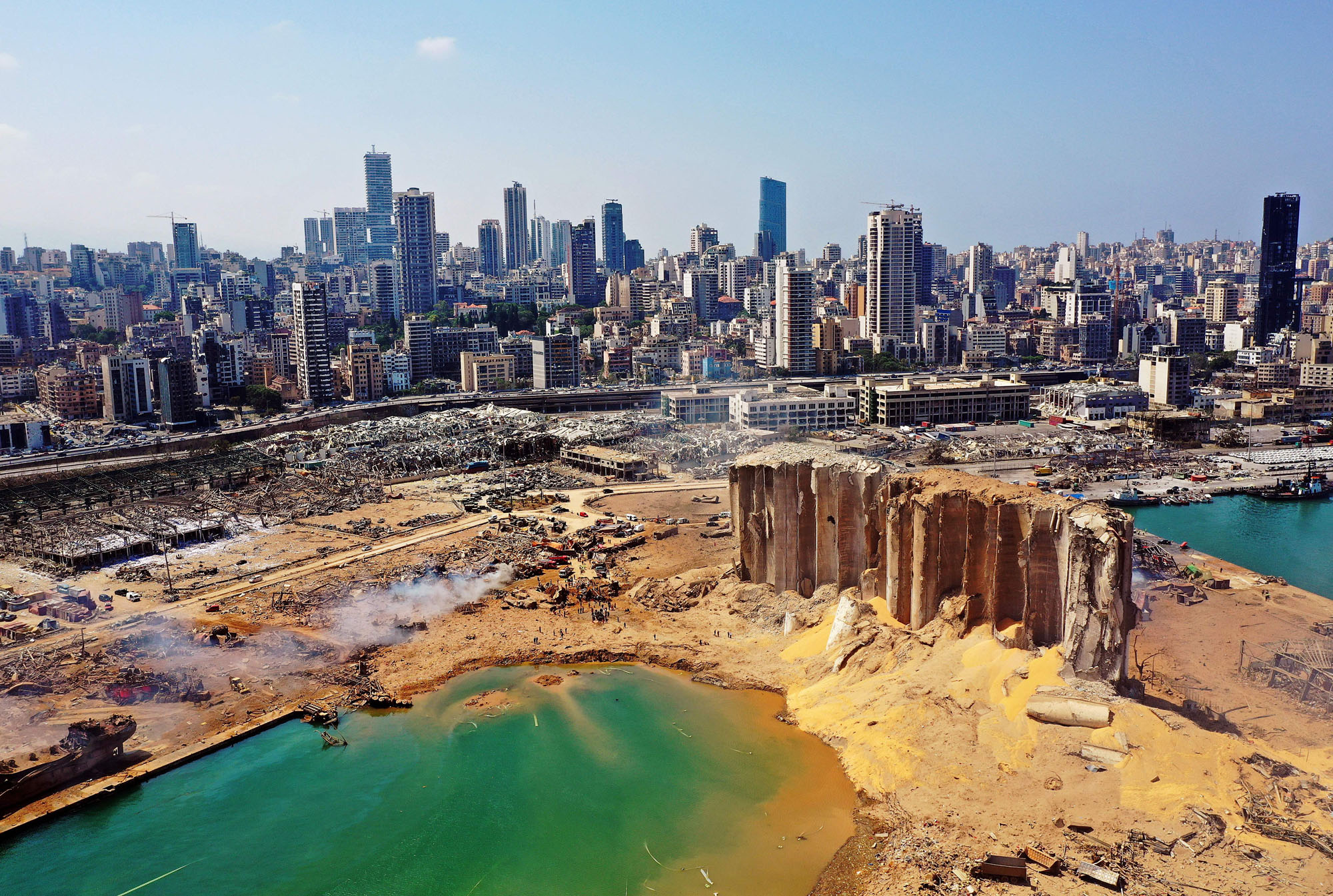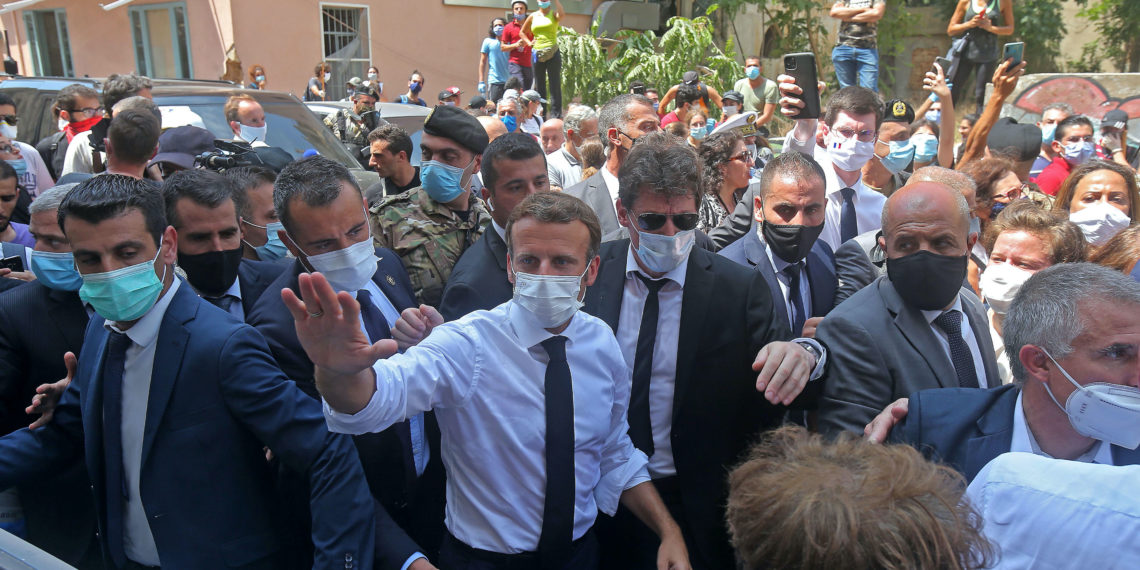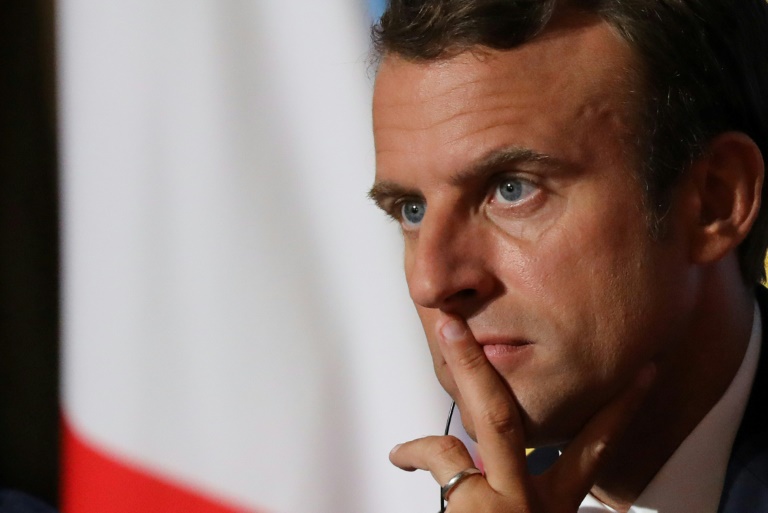French President Emmanuel Macron arrived in Beirut on Thursday in the wake of a massive explosion that ravaged the Lebanese capital.
Walking amidst the rubble and broken glass, Macron consoled distressed crowds with promises of international aid.
“I see the emotion on your face, the sadness, the pain. This is why I’m here,” he told one group.
France has helped lead the global relief effort to its former protectorate, where Tuesday’s blasts killed at least 137 people and wounded thousands more. Since Wednesday, it has rolled out medical aid, field hospitals, rescue experts, and tracking dogs. Macron is the first foreign head of state to visit Lebanon since the explosion.
Public affection for Macron upon arrival stemmed in part from anger with the Lebanese government.
Crowds swelled with anti-government slogans like “Revolution” and “The people want to bring down the regime.” One man urged Macron to rule Lebanon instead.
Lebanon was already in the throes of economic instability, made only worse by the coronavirus pandemic. Almost half of the country lives below the poverty line.

Mass protests last October ousted the government of Prime Minister Saad Hariri on a wave of anti-aristocratic sentiment. But the new one formed under Hassan Diab has struggled to flush out corruption seemingly endemic to the Lebanese state.
Macron thus used his visit on Thursday to push for systemic political change.
Just two weeks ago, French Foreign Minister Jean-Yves Le Drian said that France would deny direct aid to Lebanon unless “credible and serious reform measures” were adopted.
While Macron told reporters that “unconditional support” was now the priority, he also warned that Lebanon would “continue to sink” without meaningful change. He specifically mentioned its energy and government procurement sectors as well as widespread corruption.
Such changes are part of the “new political deal” which Macron promised to angry crowds in Beirut’s devastated streets. They also reflect a care expected of a country which used to control Lebanon by mandate – and with which it still enjoys friendly relations and close political and economic ties.






















